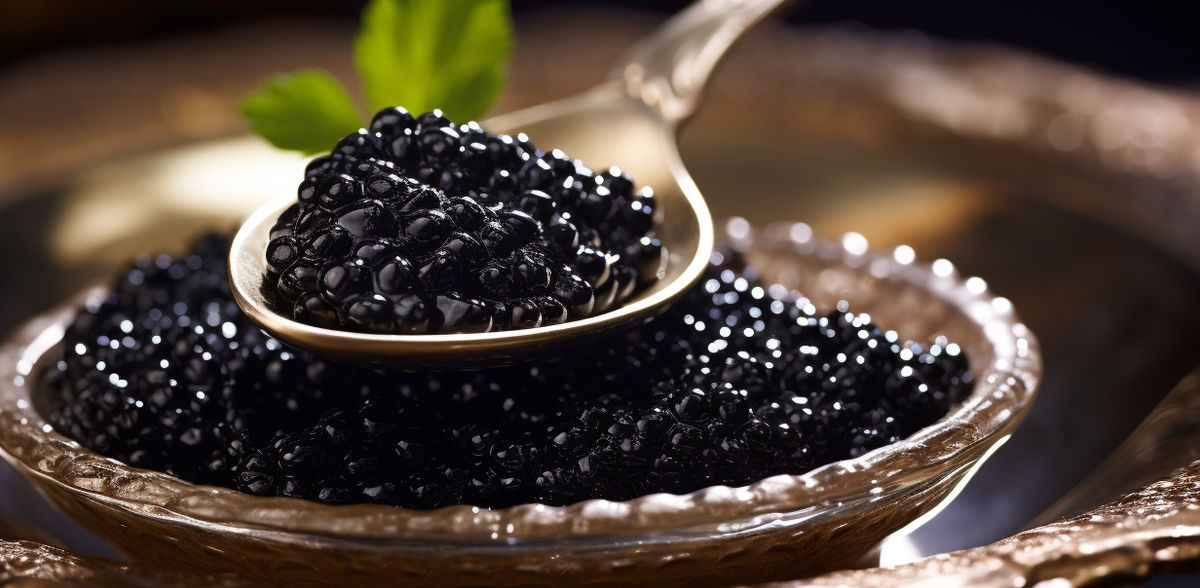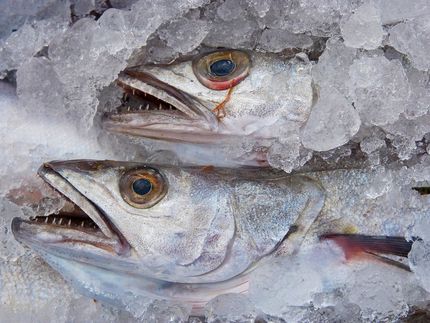Sturgeon products such as caviar sold in Europe are often illegal - or not even genuine
Gene and isotope analyses show that regulations are actively being broken
Advertisement
Wild caviar from almost all areas of origin has been illegal for decades, as overfishing has brought sturgeon to the brink of extinction. Today, caviar may come almost exclusively from farmed sturgeon and strict regulations are in place to protect sturgeon. However, using genetic and isotopic analyses of sturgeon samples from Bulgaria, Romania, Serbia and Ukraine - countries that still harbor wild sturgeon populations in the Danube - an international team found evidence that these regulations are being actively broken. Their findings show that half of the caviar and sturgeon meat samples analyzed are illegal and some do not even contain a trace of sturgeon. The analyses have been published in the journal "Current Biology".
"The conservation status of sturgeon stocks in the Danube is critical, so every single specimen is important for their survival. However, the observed intensity of poaching undermines any conservation efforts," write the scientists, led by Prof. Arne Ludwig from the Leibniz Institute for Zoo and Wildlife Research (Leibniz-IZW). "There are still four sturgeon species in the Danube today. All four species have been protected by the Washington Convention on International Trade in Endangered Species of Wild Fauna and Flora (CITES) since 1998," says Ludwig. "In 2000, their CITES listing was supplemented by a strict international labeling system for all caviar products, which was intended to prevent illegal trade." Despite these protective measures, it is known from local stories that there is still illegal fishing of wild sturgeon, according to the team. However, there have been no systematic investigations into these suspected cases to date.
To find out where the products came from, the scientists bought caviar and sturgeon meat from a variety of sources - including local markets, stores, restaurants, bars and aquaculture facilities - both online and in person. They also analyzed five samples that were confiscated by authorities. In total, the team analyzed the genetic material and isotope patterns of 149 samples. 21 percent of the samples came from poached sturgeon. Products from wild sturgeon were traded illegally in all four countries. Furthermore, 11 percent of the samples violated CITES regulations and EU trade laws - including caviar that was labeled with the wrong sturgeon species or the wrong country of origin. A total of 32 percent of the samples were classified as "customer fraud" - for example, samples that were declared as wild products but originated from aquacultures. Three of the samples served as "sturgeon soup" in Romania did not contain any sturgeon meat.
"Our results indicate a continuing demand for products made from wild sturgeons, which is alarming as these products endanger the populations of wild sturgeon species," says Jutta Jahrl, manager of the "Life for Danube Sturgeons" project at WWF Austria. "The continued demand encourages poaching and indicates that consumers do not accept aquaculture products as a complete substitute. In addition, the sale of caviar in violation of CITES and EU obligations calls into question the effectiveness of controls in general and the labeling system in particular."
The team of authors suspects that the large scale of illegal fishing is also an indicator of the lack of adequate income for local fishermen. This could increase the pressure to participate in poaching. In their article in the journal, they also point out that there appears to be a lack of effective control and prosecution in these regions, either because stopping poaching is not a priority for local authorities or because they do not have the necessary means to prove the illegality of a fish's origin.
Regardless of the reasons, they emphasize the importance of acting quickly: "Although poaching and illegal wildlife trade are often seen as problems of developing countries, these results show that poaching also occurs in the EU and in countries treated as candidate countries," the team writes. "The control of caviar and sturgeon trade in the EU and candidate countries urgently needs to be improved to ensure that sturgeon populations in the Danube have a future."
Note: This article has been translated using a computer system without human intervention. LUMITOS offers these automatic translations to present a wider range of current news. Since this article has been translated with automatic translation, it is possible that it contains errors in vocabulary, syntax or grammar. The original article in German can be found here.
Original publication
Other news from the department science
Most read news
More news from our other portals
See the theme worlds for related content
Topic World Food Analytics
Food analysis methods enable us to investigate the quality, safety and composition of our food. Whether in the traceability of food, the detection of contaminants or the verification of nutritional information - food analytics plays a crucial role in our health and nutrition. Welcome to the exciting world of food analytics!

Topic World Food Analytics
Food analysis methods enable us to investigate the quality, safety and composition of our food. Whether in the traceability of food, the detection of contaminants or the verification of nutritional information - food analytics plays a crucial role in our health and nutrition. Welcome to the exciting world of food analytics!






















































